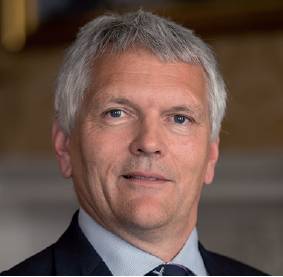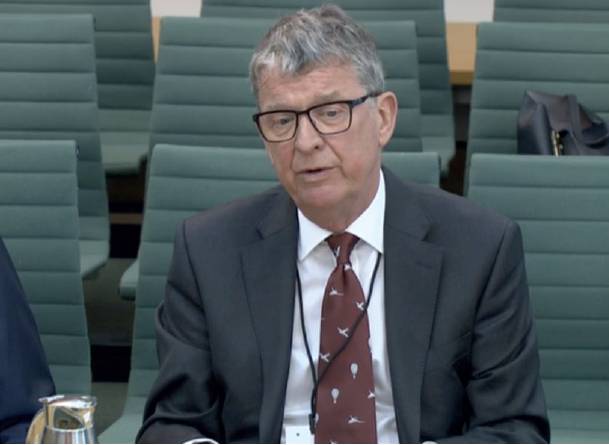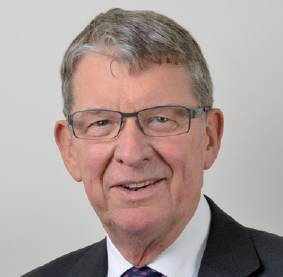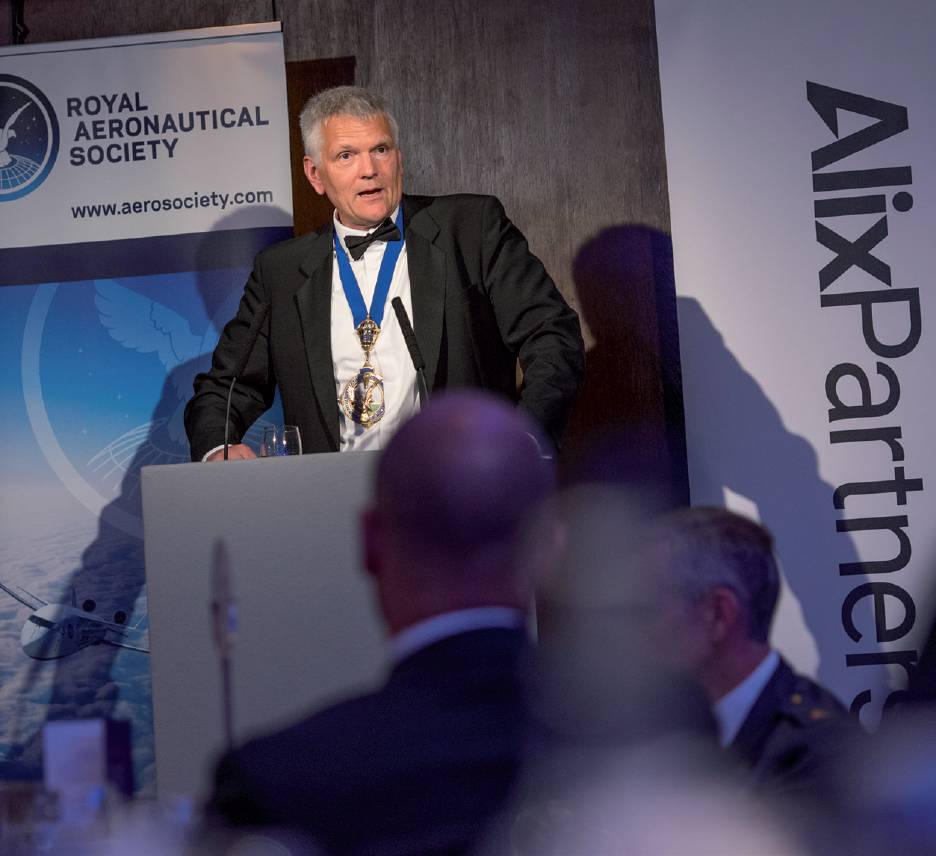Afterburner
Message from RAeS
Afterburner
 During my first month as President I have been able to get involved in several events relating to my Presidential themes – new technologies, young people and universities. I was also pleased to note that four out of the six recently elected members to Council are women.
During my first month as President I have been able to get involved in several events relating to my Presidential themes – new technologies, young people and universities. I was also pleased to note that four out of the six recently elected members to Council are women.
Marshall Aerospace and Defence kindly hosted me for a visit where I met some young members from the Cambridge Branch. We discussed a wide variety of topics, including their interactions with school children via a range of different outreach events across the city. I then was given a comprehensive tour of Marshalls, meeting some of their apprentices and seeing some of the novel designs, materials and technologies that are being developed on-site for a number of different applications.
One of the areas that I want to focus on in my Presidential year is strengthening the Society’s relationship with the universities that provide many of the graduates across aerospace and aviation.
To this end, I recently ran an Academic Summit at Hamilton Place, attended by nearly 50 participants from 20 of the UK’s ‘aerospace’ universities, with the aim of providing a forum to discuss topics of relevance and, also, for the academics to meet the relevant points of contact at the Society. The first subject was accreditation, a process all universities undertake every four years, and how this procedure could be improved. There was a useful discussion about the flight testing and flight experience required as part of accredited courses and how simulation could be included to supplement these elements.
A major part of the day then considered “what knowledge and skills should the 21st century engineering graduate be equipped with on leaving university?” This question naturally led on to the effect that any changes would have on the current syllabi, what new material to include and what to remove? A lively break-out and discussion session raised a number of changes that the delegates considered necessary. As well as keeping the fundamentals, it was felt that future undergraduates should cover more data sciences, programming, statistics and digital product design but also more life-long learning skills and exposure to industry.
Incidentally, the ‘Future Aerospace Engineer’ was a topic discussed at the Society in a one-day conference at the end of June. It was also noted that a large proportion of the academic staff at the UK’s universities have little industrial experience but are still expected to teach industry’s future graduates, a situation that must change. Other topics discussed were Ethics for Practicing Engineers, and the possibility of setting up a set of nationwide group design and individual projects.
The success of the event could be judged by the question asked by most of the participants at the end of the day: “When can we hold the next one?”
 Sir Brian Burridge giving evidence to the joint Science and
Technology Committee and Defence Committee session on
drone use in the UK on 11 June.
Sir Brian Burridge giving evidence to the joint Science and
Technology Committee and Defence Committee session on
drone use in the UK on 11 June.
At the time of writing, Theresa May has decided to step down as UK Prime Minister and the results of the European elections have just been announced, showing that the nation is just as divided as before on the issue of Brexit. There is a very real possibility of a no-deal Brexit. Since the referendum three years ago, the Society has taken a strong stance on this issue, with direct submissions to Government departments and consultations, and written evidence to Parliamentary select committees as well as press releases. The continuing uncertainty has the potential to undermine the solid foundations and confidence needed for the UK aerospace, aviation and space sectors to succeed.
Not reaching a deal would have major socioeconomic effects, affecting industry through loss of international connectivity and competitiveness, increased business costs, loss of access to skilled workers to fill indigenous skills gaps and major gaps in research funding. During his excellent speech to the Society’s Annual Banquet, Airbus CEO Guillaume Faury was very clear that “the European aerospace industry is stronger as a partnership of nations with parts, people and technology moving freely within the borders of the European Union and that the UK’s reputation as an attractive location for investment would be undermined by a disorderly no-deal Brexit.”
Hopefully, by the time that this article is published, the situation will have become clearer but I very much suspect that this will not be the case. The Society will continue to monitor the situation, providing evidence-based advice on all related civil and defence aerospace and aviation issues.

